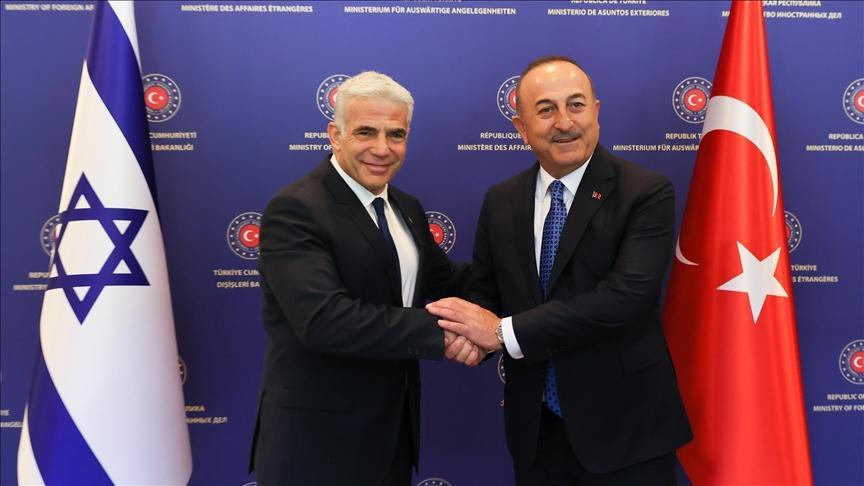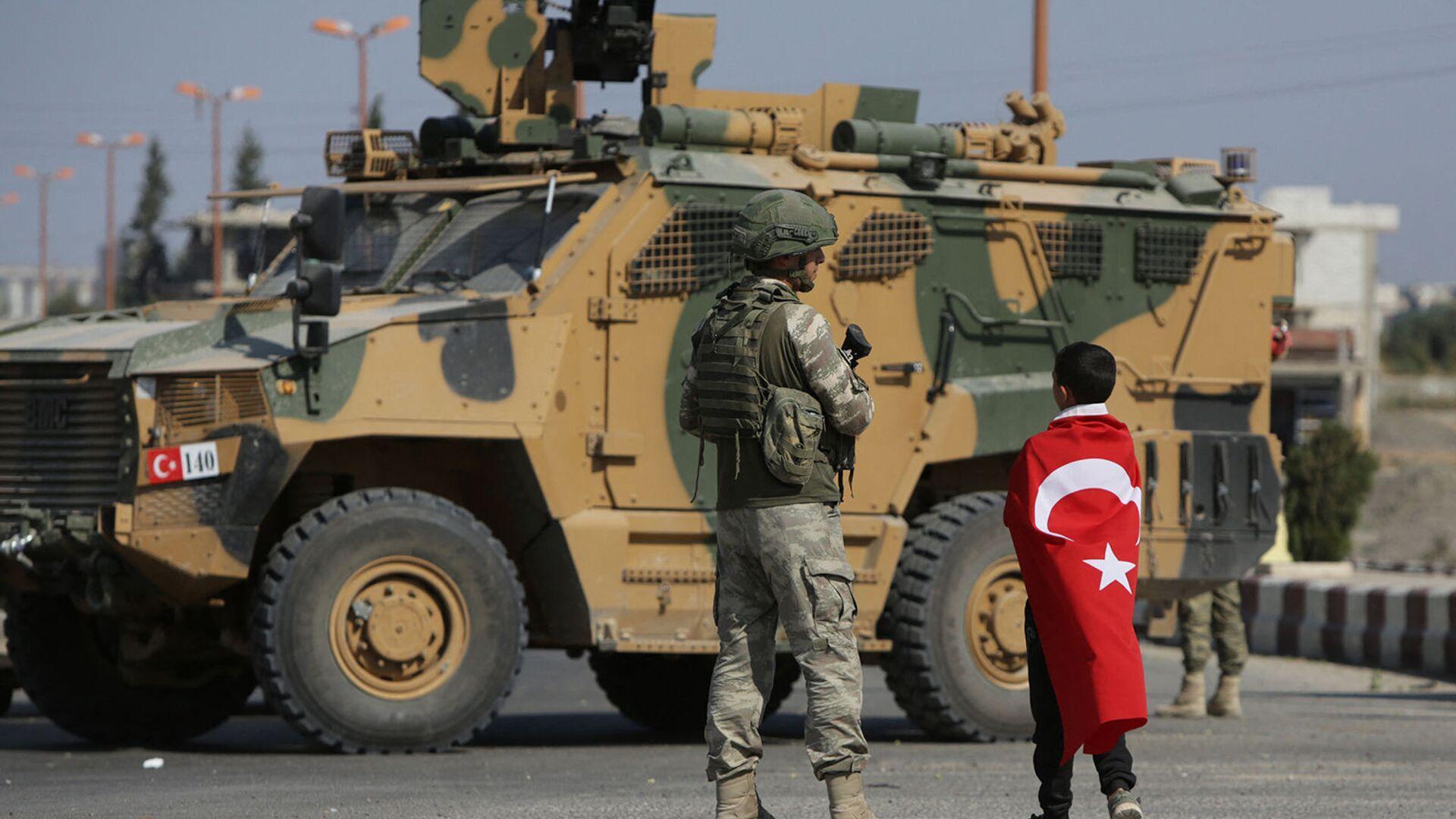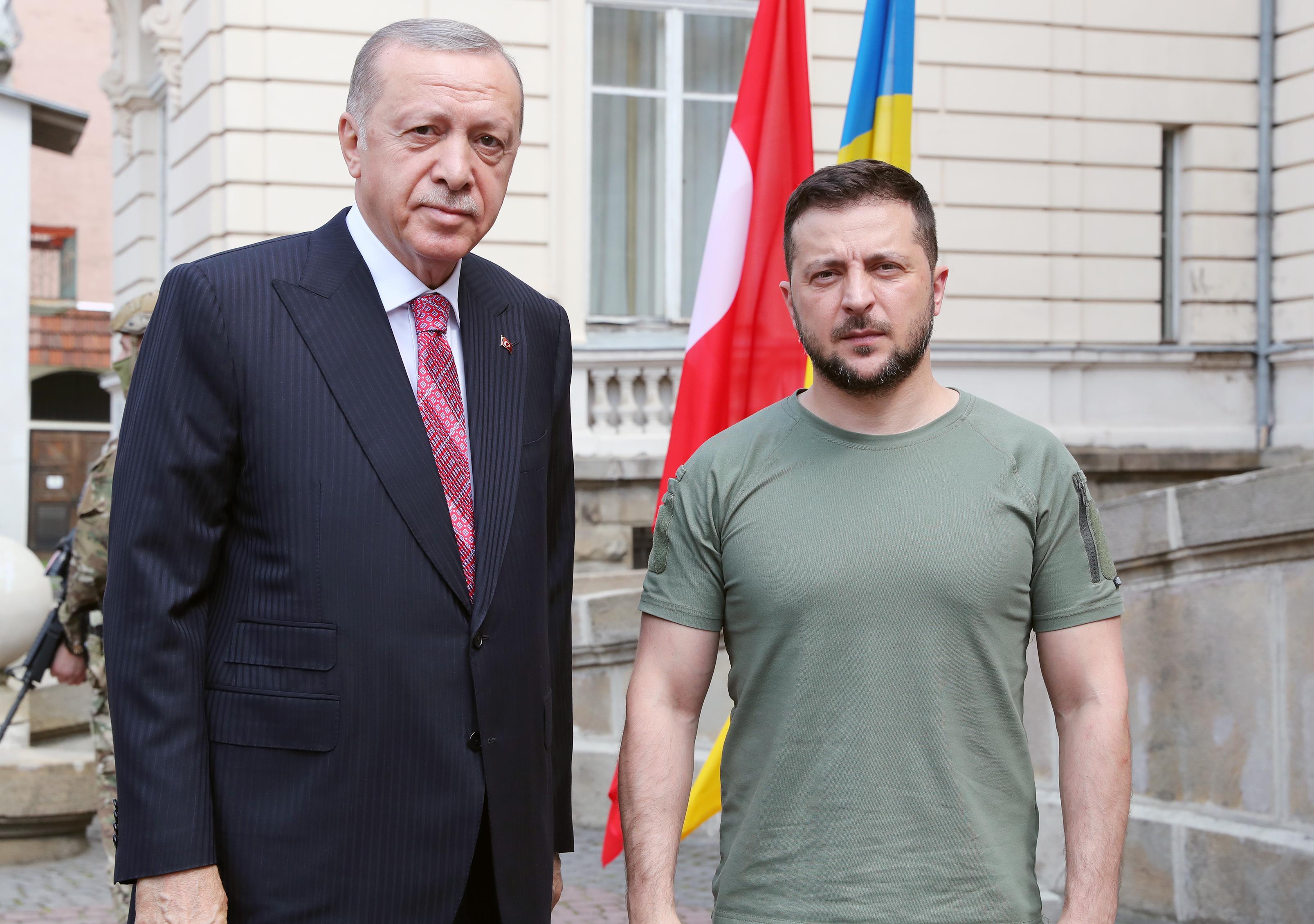Baku-Ankara-Tel-Aviv axis as pivot of new regional order
Analysis by Serhey Bohdan
ANALYTICS 22 August 2022 - 14:27
| Serhey Bohdan Caliber.Az |
Last week, Türkiye announced the restoration of full diplomatic relations with Israel. Ankara's harsh criticism of the Israeli actions against the Palestinian organizations did not prevent it. The Turkish-Israeli rapprochement adds weight to the Azerbaijani-Israeli relations that have been developing steadily all along and lays the foundation for a fundamental restructuring of the Middle East and South Caucasus by the multilateral efforts of these countries.

Isolation leads to nowhere
On August 18, at a press conference with Kyrgyzstan's foreign minister, Turkish Foreign Minister Mevlut Cavusoglu announced the decision to exchange ambassadors with Tel Aviv. On the same day, President Recep Tayyip Erdogan had a telephone conversation with Israeli Prime Minister Yair Lapid, during which it was stressed that a new ambassador would be appointed as soon as possible. In doing so, the two countries will draw a line under the "ice age" in their relations.
Turkish-Israeli relations have been deteriorating rapidly since 2010 due to the Israeli blockade of the Gaza Strip and the raid on a Turkish ship carrying humanitarian aid to besieged Gaza. Ambassadors were also recalled in 2018-19, following a violent crackdown on Palestinian demonstrations.
Dialogue with Israel resumed a year ago, following the change of government in Tel Aviv and the election of Isaac Herzog as president, followed by his visit to Türkiye in March, followed by Cavusoglu's visit to Israel in May (becoming the first Turkish foreign minister to visit the country in 15 years). Preparations for the restoration of relations were completed by current Israeli Prime Minister Yair Lapid, who arrived in Türkiye in June.
At first glance, all this seems paradoxical, given Türkiye's criticism of Israeli policy. But it should be noted that Ankara, even when criticizing Tel Aviv, has usually avoided uncontrolled escalation and public expressions of indignation, rage, or anger, which are fashionable nowadays in Eastern European politics, through which it is customary to advance some imaginary claims of moral superiority over its opponents. While defending the Palestinians from Israeli pressure, Ankara has simultaneously stopped Iranian attempts to fight Israel on Turkish territory, and Turkish criticism of Israel has in no way impeded Israel's close relations with Türkiye's closest ally, Azerbaijan. But overall, the lack of formal channels of interaction between Ankara and Tel Aviv meant that all three countries, while playing leadership roles in their regions, could not take full advantage of the potential of trilateral cooperation.
Türkiye is re-establishing relations with Israel after the recent normalization of relations with the UAE, Egypt, and Saudi Arabia, and statements of readiness to engage with Syria. Some may think that Ankara has compromised on some of its principles after a long confrontation with these countries. But don't jump to such conclusions.
The fact is that a complete and permanent rupture of relations, together with other uncompromisingly hostile actions, deprives the country acting in this way of the opportunity to influence the other side because the rupture itself gains some political weight and works as an instrument of influence only in a situation where these relations look realistic. This rule works even in the case of superpowers - remember the isolation of North Korea, Cuba, or Iran supported for decades by the Americans and the "collective West", or Russia's attempts to do something similar in relation to the Baltics and other Eastern European countries. In all these cases, the results have been the exact opposite of the intended objectives. Yes, this can be framed beautifully and ethically - to label the other side as "terrorists," "Nazis," etc., and impose embargoes and sanctions, but as history shows - all this is extremely ineffective.
By the way, that is why even now Baku and Ankara do not give in to the provocations of some radical circles in Yerevan and continue to negotiate (although sometimes the Azerbaijani army gets involved). This is the policy of a strategically thinking party, which understands that it is possible, of course, to break off negotiations and "beat" the opponent by force, but this will not justify itself in the end, and a responsible politician (in contrast to the exalted activist or publicist) will think about the long-term perspective and work not to crush someone, but rather to negotiate and find ways to joint development.

Who was first to concede?
The same logic underlies Türkiye's normalization of relations with the countries of the region and it would be absurd to speak of some kind of retreat by Erdogan for another reason. Take the last two examples, Israel and Syria. First, it is remarkable that Ankara is simultaneously restoring relations with two radically different regimes that belong to opposite camps in world politics - Israel is the main ally of the United States, while Syria is the closest partner of Russia and Iran.
Secondly, while preparing to re-establish relations with Israel, the Turkish authorities did not explicitly renounce their position on the Palestinian issue. A number of Turkish leaders and official institutions have openly condemned Israeli actions in the Gaza Strip in recent weeks, and Foreign Minister Cavusolgu even made a phone call to the Head of Hamas political bureau, Ismail Haniyeh. Incidentally, while announcing the restoration of relations with Israel, Cavusoglu stressed: "We will continue to defend the rights of Palestine, Jerusalem, and Gaza."
Something similar is happening in relations with Syria. On August 16, Turkish Foreign Minister Cavusoglu, commenting on his recent conversation with his Syrian counterpart, said about the coming steps to normalize relations with Syria: "For us the issues of borders and territorial integrity of Syria are important. The permanent solution in Syria is a political solution. The regime and the opposition must come to an agreement."
A paradox? After all, it is not difficult to find examples of harsh words and actions on the part of the Turkish leadership against the Syrian regime of Bashar al-Assad during the Syrian civil war. But they all took place in a certain context, which in many ways no longer exists. One can, of course, like some politicians in the West, take a pseudo-moral position and declare that there can be no further talks with Assad. But this sounds moral and beautiful only on the podium in the absence of critics who would remind us that the result of such a position is ultimately the continued suffering of millions and even the deaths of many thousands of Syrians. Just as the years-long blockade of Iraq meant only the suffering and death of millions of Iraqis, and above all, of children.
That is why it is better to keep silent about morality and immorality here; Ankara is certainly not doing anything more reprehensible than Western countries or Arab allies of the West. However, there is another point about Türkiye's national security concerns. The Assad regime in Syria has not been formally overthrown, but in fact, it is no longer "the same", in particular, Damascus no longer supports radical organizations fighting against Türkiye - and at one time it was directly involved in the creation and activities of both ASALA and the Kurdistan Workers' Party (PKK). And now the Turkish government is clearly stating that the restoration of relations with Damascus is based on two conditions - an end to the presence of PKK units in the regions of Syria bordering Türkiye (which are there thanks to Western, primarily American support) and the possibility of the safe return of Syrian refugees from Türkiye to their homeland. Peace and security for Türkiye, the reconstruction of Syria, and the search for a compromise between the Syrian opposition and the government, rather than the continuation of pathos and moralizing speeches about the Assad regime, are the natural goals of any Turkish government that responsibly governs the country. After all, there is nothing worse than neighboring a country that is at war or even simply destroyed.

Turkish double-headed eagle
The successful normalization of Türkiye's relations with the countries of the region was also made possible by Ankara's refusal to take one side or the other in the global strife of recent times. As Erdogan said at a recent meeting with diplomats, "Due to its geographical position, Türkiye cannot turn its back either to the East or to the West. Like the double-headed eagle, we must maintain strong relations with both East and West. Despite the double standards we face, we have not abandoned our goal for the European Union. We have not retreated one step from our goal of full membership in the EU, and we will not." We can also put it this way - Türkiye is not going to stoop to the "trench logic", to take a place "in the trenches" of any of the global conflicts - neither Russia vs West, nor the West vs China, nor Iran vs West. This is also because once in such a "trench," it will no longer be able to have any conversations with the other side.
It is possible to achieve a great deal even in a situation of utmost confrontation by maintaining a principled, but the open position with everyone. The negotiations with the Ukrainian leadership in Lviv last weekend also demonstrated this. After all, Erdogan is probably the only major politician who will be listened to in Kyiv and Moscow, and even in Washington and Brussels. By comparison, French President Macron can only call Putin, while Erdogan is capable of holding a series of substantive and, as the "grain deal" proved, effective talks with the Kremlin, interspersed with equally substantive communication with the Kremlin's opponents.
This is not because the incumbent Turkish leader is trying to please everybody. In the eyes of the Western liberal establishment, he has long been a target for harsh attacks. The influential German magazine Eastern Europe once devoted an entire issue to a comparison between Putin and Erdogan, eloquently titled "Comparative Toxicology," and Western activists, media, and some politicians have been saying for decades that Erdogan is on the verge of collapse. Is he really like Putin?
Some may think so, but there is a fundamental difference, the current Turkish leadership, as a rule, demonstrated its strong political will, but also made it clear - it is not going to secede from the rest of the world and declare other countries "sworn enemies", but is determined to seek strategic solutions. That is why Ankara reminds Israelis - "The al-Aqsa Mosque in Jerusalem is our red line" and "There is no justification for killing children, babies" - but it does not declare anyone as the spawn of hell, but offers to look for ways of interaction that will build a better future for all.
A strong political will also means that the Turks refuse to follow any international bloc to the world slaughter. Ankara has achieved its current influence in world politics only because, as Mehmet Barlas remarked recently, the policy of the current government has kept it from falling into the abyss of the global crisis by staying above the fray.
The importance of refraining from the temptation to join one side or the other in the imperialist showdown, and to seek rights for one's country with restraint and consistency, incidentally, was clearly demonstrated in his time by Mustafa Kemal Ataturk. Let us remember those years - Türkiye, like Germany and other European countries, was extremely dissatisfied with the treaties imposed on the losers by the winners in the war - Great Britain and France. But while in Europe, attempts to revise the Versailles and other treaties led to forceful scenarios, building new blocs and, ultimately, to a world imperialist war, Ataturk and his associates made a bet on refusing to join any bloc (initially there were rumors of an impending alliance with the USSR) and, maneuvering in international storms, achieved in the 1920s and 1930s a revision of the main problematic limits and solved a number of extraordinary political problems - starting with the restoration of control over the Bosphorus and the Dardanelles and ending with the annexation of Iskenderun and Hatay.
The parallels with today are obvious. It only remains to add that Türkiye, in moving closer to Israel and other countries, is doing so as a state increasingly confident in its leadership role not only in the Middle East but also in neighboring regions. Israel is also on the rise, having established relations with major Arab states in the last couple of years, and Azerbaijan, which has not only restored its territorial integrity but is also "sewing" back together the South Caucasus region, which was torn apart by extremist forces in the past. The rapprochement of these three states means further strengthening of the tendencies to build the region from the Mediterranean to the Caspian Sea on the basis of initiatives put forward by the states of this region.
Caliber.Az
|
1
|
High time to declare US ambassador persona non grata Mr. Libby, take your suitcase and leave for Washington
05 May 2024 - 12:06
|
|
2
|
Factory burst into flames in Germany PHOTO / VIDEO
03 May 2024 - 16:19
|
|
3
|
Profiling Archbishop Bagrat Galstanyan – Tavush region protest leader
03 May 2024 - 17:20
|
|
4
|
Will Azerbaijan's diplomatic efforts bring change? UNESCO's crucial crossroad
03 May 2024 - 17:13
|
|
5
|
What to expect from China’s stance on Palestine? A long track of mediation
04 May 2024 - 10:28
|
Despite F-16 deal, Türkiye wants Eurofighter, too
06 May 2024 - 06:02
AI could drive natural gas boom as power companies face surging electricity demand
06 May 2024 - 04:03
World’s first fully electric robot boasts 550 trillion ops
06 May 2024 - 02:04
Battle of Britain Memorial up for tourism award
06 May 2024 - 00:04
Ukraine marks its third Easter at war under fire from Russian drones
05 May 2024 - 22:00
Chinese president visiting Europe for first time in five years
goodwill tour to be uphill struggle05 May 2024 - 20:03
Hamas, Hezbollah launch about 30 missiles at Israel
05 May 2024 - 18:02
EU at risk of "implosion" as far-right seeks scapegoats, minister warns
05 May 2024 - 17:45
West destabilising situation in Georgia
Security, impunity for (foreign) agents05 May 2024 - 17:28
FT: Russia plotting sabotage across Europe
05 May 2024 - 17:23
Finland plans to build explosives factory
05 May 2024 - 17:04
Ukraine requests emergency energy from Poland, Romania
05 May 2024 - 16:43
Netanyahu government votes to close Al Jazeera channel in Israel
05 May 2024 - 16:24
UN assistant secretary-general to visit Armenia's border with Azerbaijan
05 May 2024 - 16:05
NATO's secret red lines: Alliance prepared to act if third party intervenes in Ukraine conflict
05 May 2024 - 15:46
Albanian-Udi community to celebrate Easter in ancestors’ churches in Karabakh
05 May 2024 - 15:29
Media: Still no deal in Israel-Hamas truce talks
Cairo meeting results05 May 2024 - 15:13
Armenian priests, peddling false narratives
Unmasking revanchist rhetoric05 May 2024 - 14:57
US official: Defence pact with Saudi Arabia impossible without Israel deal
05 May 2024 - 14:54
Bondholders to push Ukraine to resume debt payments
05 May 2024 - 14:36
Cuba abolishes visa regime for Chinese citizens
05 May 2024 - 14:17
S. Korea to participate in US-led cyber exercise this week
05 May 2024 - 13:58
French president favours continued dialogue with Russia amid tensions in Ukraine
05 May 2024 - 13:40
Three New York synagogues, Brooklyn Museum targeted in bomb threats
False alarm05 May 2024 - 13:21
Pro-Palestine rallies sweep across European cities amid Gaza onslaught
05 May 2024 - 13:02
Azerbaijan, Bangladesh discuss opportunities for cooperation in healthcare
PHOTO05 May 2024 - 12:44
Azerbaijan, Gambia cancel visa regime for diplomatic passport holders
PHOTO05 May 2024 - 12:27
France prepares for cyberattacks from Russia during Paris Olympic Games
05 May 2024 - 12:08
High time to declare US ambassador persona non grata
Mr. Libby, take your suitcase and leave for Washington05 May 2024 - 12:06
Hamas reveals plans for negotiations with Israel
05 May 2024 - 11:49
Azerbaijan, Morocco cancel visa regime
05 May 2024 - 11:32
Double standards and Michel's confession
Europe's hypocrisy05 May 2024 - 11:18
Russian troops take control of Ukraine's largest fortification in Krasnohorivka
05 May 2024 - 11:16
Azerbaijan, Somalia discuss issues of mutual cooperation
PHOTO05 May 2024 - 10:55
Georgia interested in cooperation on Green Corridor project, PM says
05 May 2024 - 10:39
Armenians protesting against delimitation of border with Azerbaijan reach Ijevan town
05 May 2024 - 10:18
World-renowned photojournalist plans to publish new books on his Karabakh journey
05 May 2024 - 10:01
Azerbaijani minister: Zangezur corridor to be beneficial for all countries in South Caucasus
05 May 2024 - 09:46
Azerbaijan to host 16th OIC Islamic Summit
05 May 2024 - 09:30
OIC urges Armenia to fulfill its commitments
05 May 2024 - 09:08
